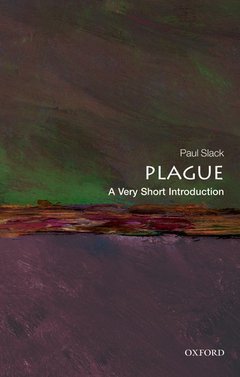Description
Plague: a very short introduction (series: very short introductions)
Very Short Introductions Series
Author: Slack Paul
Language: English
Subject for Plague: a very short introduction ...:
Publication date: 03-2012
152 p. · 11.4x17.3 cm · Paperback
Out of Print
152 p. · 11.4x17.3 cm · Paperback
Out of Print
Description
/li>Contents
/li>Biography
/li>
Throughout history plague has been the cause of many major catastrophes. It was responsible for the Black Death of 1348 and the Great Plague of London in 1665, and for devastating epidemics much earlier and much later, in the Mediterranean in the sixth century, and in China and India between the 1890s and 1920s. Today, it has become a metaphor for other epidemic disasters which appear to threaten us, but plague itself has never been eradicated. In this Very Short Introduction, Paul Slack explores the historical impact of plague over the centuries, looking at the ways in which it has been interpreted, and the powerful images it has left behind in art and literature. Examining what plague meant for those who suffered from it, and how governments began to fight against it, he demonstrates the impact plague has had on modern notions of public health and how it has shaped our history. ABOUT THE SERIES: The Very Short Introductions series from Oxford University Press contains hundreds of titles in almost every subject area. These pocket-sized books are the perfect way to get ahead in a new subject quickly. Our expert authors combine facts, analysis, perspective, new ideas, and enthusiasm to make interesting and challenging topics highly readable.
Introduction. 1. Plague: What's in a name?. 2. Pandemics and epidemics. 3. BigiImpacts: The black death. 4. Private horrors. 5. Public health. 6. Enduring images. 7. The lessons of histories. References. Further reading.
Paul Slack is Emeritus Professor of Early Modern Social History at Oxford University, and author of a classic study of The Impact of Plague in Tudor and Stuart England (Routledge 1985, OUP 1990). He has written books on urban history and poverty in the sixteenth and seventeenth centuries, and essays on the history of disease and the environment over longer periods, and been editor of the journal Past and Present. He is a Fellow of the British Academy and was Principal of Linacre College, Oxford, until his retirement in 2010.
© 2024 LAVOISIER S.A.S.




